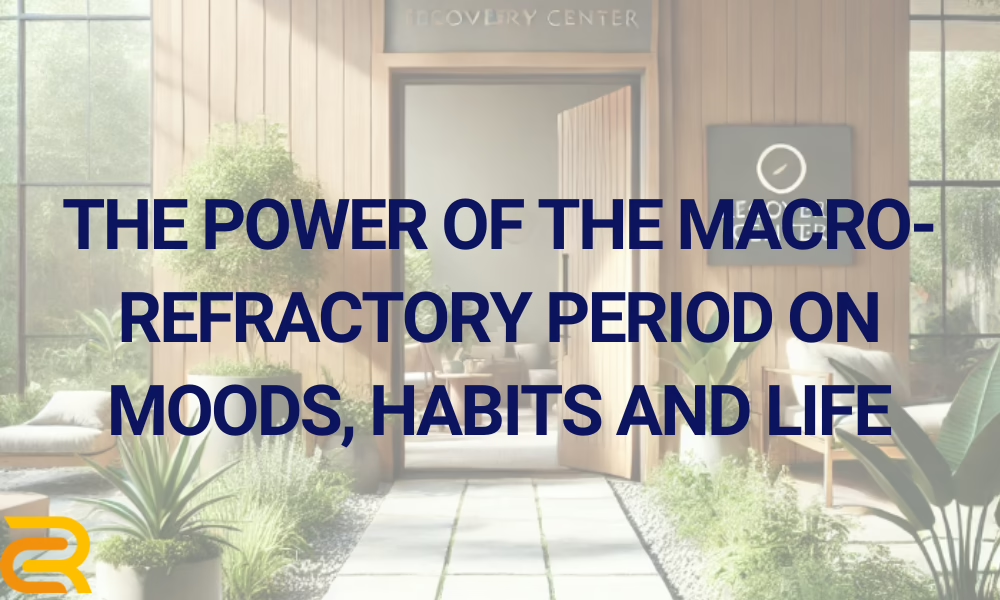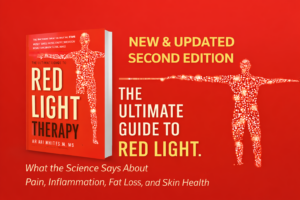The concept that ties it all together is what I call the macro refractory period. This idea has roots in science but is also deeply practical and applicable to everyday life. Understanding it has transformed how I approach recovery, and it can do the same for you.
Let me explain what it is and, more importantly, how you can use it to feel better, think clearer, and live more effectively.
What Are Macro Refractory Periods?
Think of your body as a high-performance machine. Just like your car can’t run down its battery, neither can you. A macro refractory period is your body’s built-in recovery cycle—a time for repair, restoration, and energy replenishment after you’ve been stressed, active, or running on overdrive.
Here’s the cool part: It’s similar to how your neurons work. After a nerve fires an impulse (an action potential), it enters a short refractory period where it can’t fire again or needs extra stimulation to do so. This ensures your nervous system doesn’t get overwhelmed and can keep working efficiently.
On a larger scale, your entire body goes through a similar process:
- After periods of intense activity or stress, you need recovery time to reset and recharge.
- If you skip this recovery, your system starts to break down—physically, mentally, and emotionally.
How Macro Refractory Periods Work in Your Body
During a macro refractory period, your body is hard at work behind the scenes:
- Energy Restoration: Your cells replenish ATP (your body’s energy currency) and glycogen stores so you can keep going.
- Tissue Repair: Muscles, connective tissues, and even neurons repair themselves, building back stronger.
- Nervous System Reset: Your autonomic nervous system shifts from “fight or flight” mode to “rest and digest,” calming your mind and body.
- Neurochemical Balance: Stress hormones like cortisol decrease, while mood-enhancing chemicals like serotonin and dopamine return to healthy levels.
Here’s the kicker: If you don’t allow for these recovery processes, everything starts to feel harder. Your mood suffers, your habits break down, and your energy tanks.
How This Affects Your Mood and Habits
Let’s get real. When you’re burned out, your body doesn’t take the hit—it’s your mood, thoughts, and even your ability to stick to simple routines. I’ve been there and seen this play out for so many people I work with.
When You Neglect Recovery:
- You feel irritable, anxious, in a fog, or even depressed because your stress hormones are running the show.
- You lose energy, making everything feel like a slog.
- Your brain gets foggy, so even the smallest decisions feel overwhelming.
When You Embrace Recovery:
- You feel emotionally stable and ready to handle life’s ups and downs gracefully.
- You think clearer, make better choices, and actually stick to your habits.
- You build resilience, adapting to challenges instead of crumbling under them.
The Science: Cellular and Systemic Recovery
What really excites me about macro refractory periods is how beautifully they connect to what’s happening in your body at the cellular level.
Cellular Refractory Periods
- After a neuron fires, it enters an absolute refractory period (where it can’t fire again) or a relative refractory period (where it needs extra stimulation to fire).
- This ensures precise signaling and prevents overloading the nervous system.
Macro Refractory Periods
- Similarly, your body enters a recovery cycle after intense effort or stress.
- These periods ensure your energy systems, tissues, and nervous system don’t get overwhelmed and can rebuild for future challenges.
How to Apply Macro Refractory Periods in Your Life
Here’s where it gets practical. If you want to improve your mood, build better habits, and feel more alive, you must integrate recovery into your daily life. Here’s how I do it—and how I recommend you do it, too.
1. Sleep: The Ultimate Recovery Tool
Think of sleep as your body’s built-in absolute refractory period. It’s non-negotiable.
- Aim for at least 7-9 hours of quality sleep every night.
- Build a calming bedtime routine—no screens, dim lights, and maybe some meditation or reading.
2. Plan Active Rest
Recovery doesn’t always mean lying on the couch (though sometimes it does!). Active rest keeps your body and mind engaged without overloading them.
- Take short walks, stretch, or try yoga.
- Build recovery breaks into your workday—10 minutes of breathing, light movement, or closing your eyes, medication can work wonders.
3. Use Recovery Tools During Refractory Periods
This is where science meets action. Tools like PEMF therapy, red light therapy, and oxygen therapy can supercharge your recovery:
- PEMF Therapy: Stimulates cellular repair and circulation.
- Red Light Therapy: Boosts ATP production in your cells, giving you more energy.
- Oxygen Therapy: Enhances brain function and endurance by delivering more oxygen to your system.
4. Add Hormetic Stressors
Hormesis is all about using controlled stress to build resilience. Think Infrared Saunas and cold plunges:
- A quick cold plunge can boost endorphins and wake you like nothing else.
- Sauna sessions help you relax, detox, and reset.
5. Balance Effort with Recovery
Here’s the truth: Just like your neurons can’t fire constantly without breaking down, neither can you. Alternate high-effort periods with deliberate, proactive recovery:
- After a tough day, permit yourself to rest.
- Plan recovery periods/days into your schedule, just like you would plan workouts or meetings.
Recovery is Your Secret Weapon
From personal experience and working with clients, here’s what I know: Recovery isn’t a reward for hard work—it’s what makes hard work possible. When you embrace macro refractory periods, you:
- Improve your mood.
- Build habits that stick.
- Set yourself up for long-term energy and success.
My Challenge to You
Take a look at your life right now. Are you honoring your body’s need for recovery? Or are you stuck in a cycle of exhaustion and frustration?
Start small. Add one deliberate proactive recovery practice to your day—like finding a location for Red Light Therapy or Photobiomodulation, maybe a short walk, a 10-minute breathing session, or just going to bed earlier. Trust me, it’ll make a world of difference.
Recovery is the foundation of everything. Embrace it, and you’ll not only feel better—you’ll become the person you’ve always wanted to be as you start developing your performance lifestyle.
Let’s make it happen.
— John Allen Mollenhauer “JAM”






